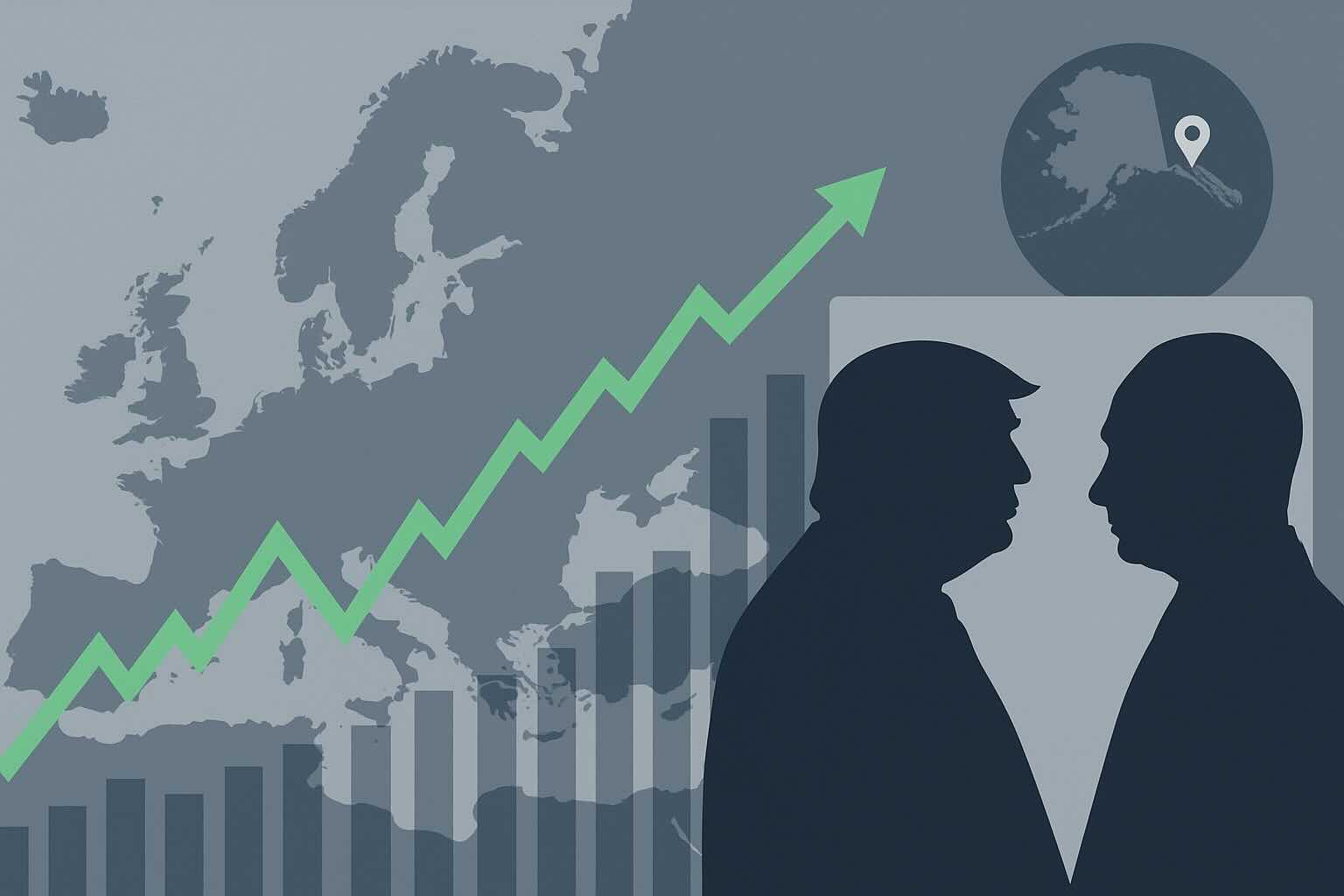By mid-session, miners and chemicals led gains, and the benchmark was set for a second straight weekly advance.
Major national indices moved in step. The UK’s FTSE 100 hovered around record territory, Germany’s DAX traded at a one-month high, and Spain’s IBEX and Italy’s FTSE MIB touched their strongest levels since 2007. The advance was underpinned by company results as well as hopes that any progress in U.S.–Russia talks could reduce geopolitical risk premia.
The Alaska summit is expected to address prospects for a ceasefire in Ukraine and possible movement on strategic arms control. While officials have played down the likelihood of a full breakthrough, markets are alert to signals that could influence energy, defence and reconstruction-linked names. “Markets are waiting in particular for a ceasefire,” said Uwe Hohmann of Metzler Capital Markets, noting that banks and construction materials could benefit from any credible path to rebuilding.
Earnings remained a key pillar. According to LSEG I/B/E/S tallies earlier this week, a slim majority of European companies reporting so far have beaten forecasts, helping sentiment withstand macro headwinds.
Resource stocks outperformed. Antofagasta rose after the Chilean miner posted a near 60% jump in first-half core earnings on stronger copper pricing and output, with peers Anglo American and Glencore also firmer. The sector-level move aligned with the day’s leadership on the STOXX 600.
There were notable single-stock moves elsewhere. Denmark’s NKT gained after lifting full-year guidance alongside record operational performance in the second quarter, reflecting sustained demand in high-voltage power cables.
Technology hardware suppliers lagged. ASML traded lower after U.S. peer Applied Materials cut its fourth-quarter outlook, citing weaker China demand and uncertainty around export licences and tariffs. ASML had warned in mid-July that 2026 growth may be difficult to achieve as chipmakers delay U.S. investment decisions pending tariff clarity. Related European chip-equipment names also eased.
Consumer discretionary saw the session’s sharpest faller. Shares in Pandora dropped more than 12% after the jewellery group flagged weakening sales in core European markets, even as U.S. performance held up. The company maintained full-year guidance but signalled margin pressure from input costs and tariff-related effects.
Global macro data were mixed for risk assets. A stronger-than-expected U.S. producer-price report on Thursday trimmed market odds of a larger Federal Reserve rate cut next month, while investors also weighed soft Chinese activity figures for July. The combination dented hopes of a rapid policy easing cycle but did not derail European stocks, which continued to take their cue from earnings and event risk around the Alaska talks.
In the UK, the FTSE 100’s strength this week reflected gains across defence, financials and commodities, even as sterling’s moves and tariff headlines remained in focus. Market commentary pointed to ongoing rotation towards domestically oriented stocks alongside names leveraged to infrastructure and energy transition spending.
Energy markets were steadier ahead of the summit, with traders considering whether any progress on Ukraine could alter the path for sanctions or supply risks, particularly in oil and gas. Analysts cautioned that, absent concrete outcomes, price effects would likely be modest in the near term.
For now, European equities appear to be balancing firmer micro data against uncertain geopolitics and policy signals. A durable breakout will likely depend on whether the earnings beat rate holds up through the remaining season and whether the Trump–Putin encounter delivers even incremental confidence on de-escalation.
In the interim, sector leadership remains sensitive to headlines: cyclicals with exposure to reconstruction and infrastructure are bid on ceasefire hopes, while trade- and tariff-exposed technology hardware continues to trade defensively.
EU awaits US follow-up on tariff deal as car duties and metals plan remain unresolved
Post Views: 920
